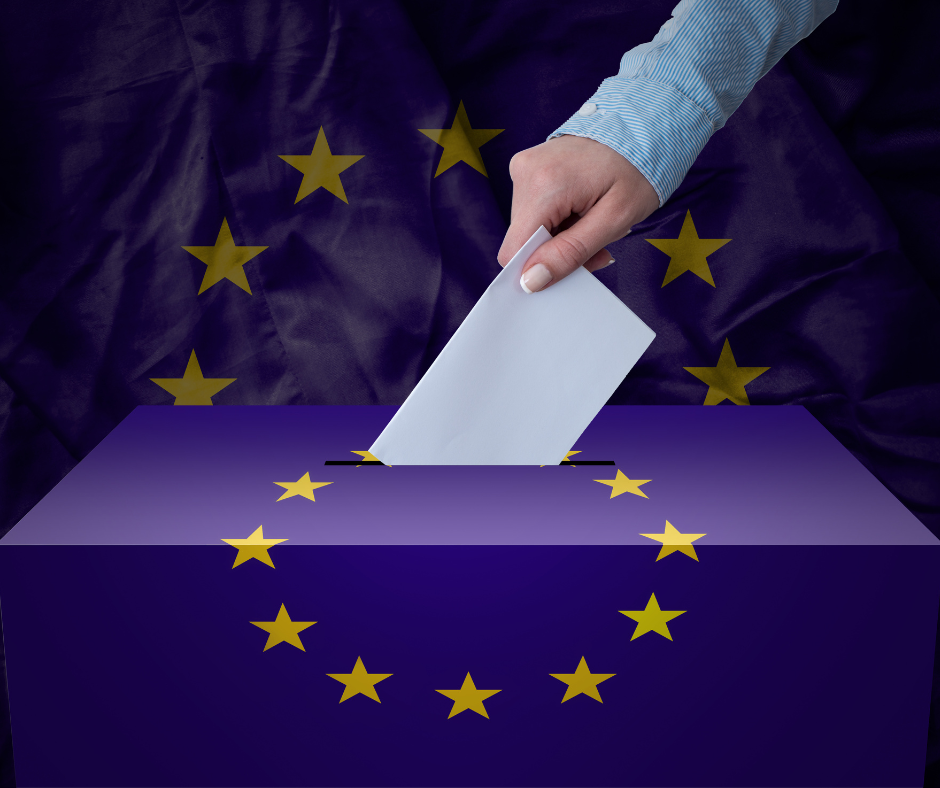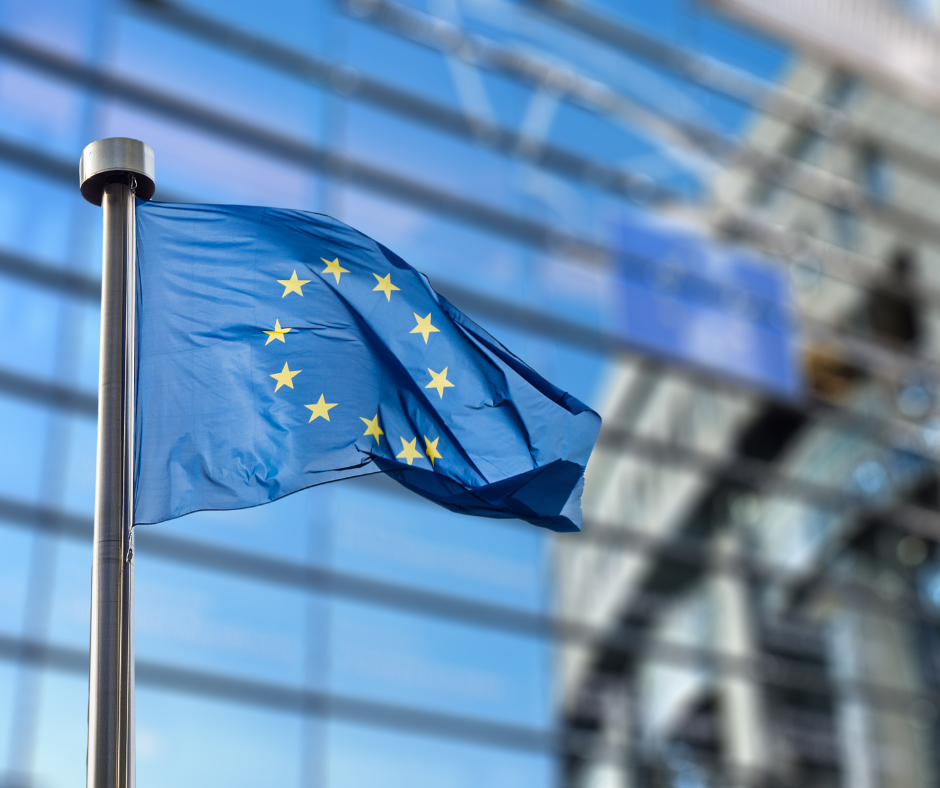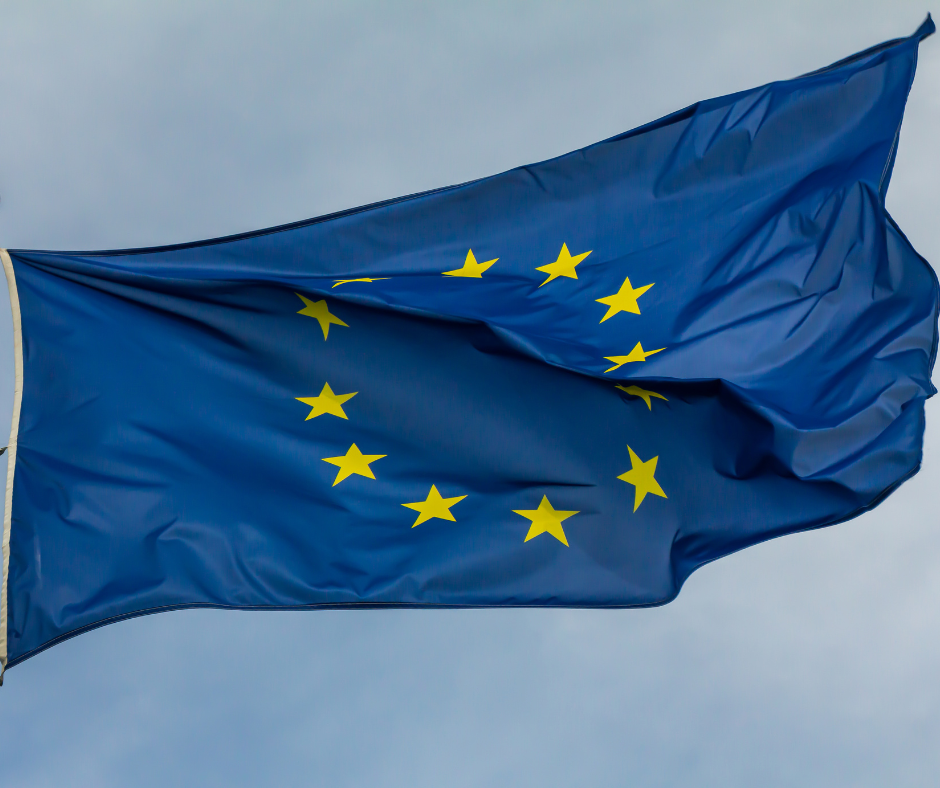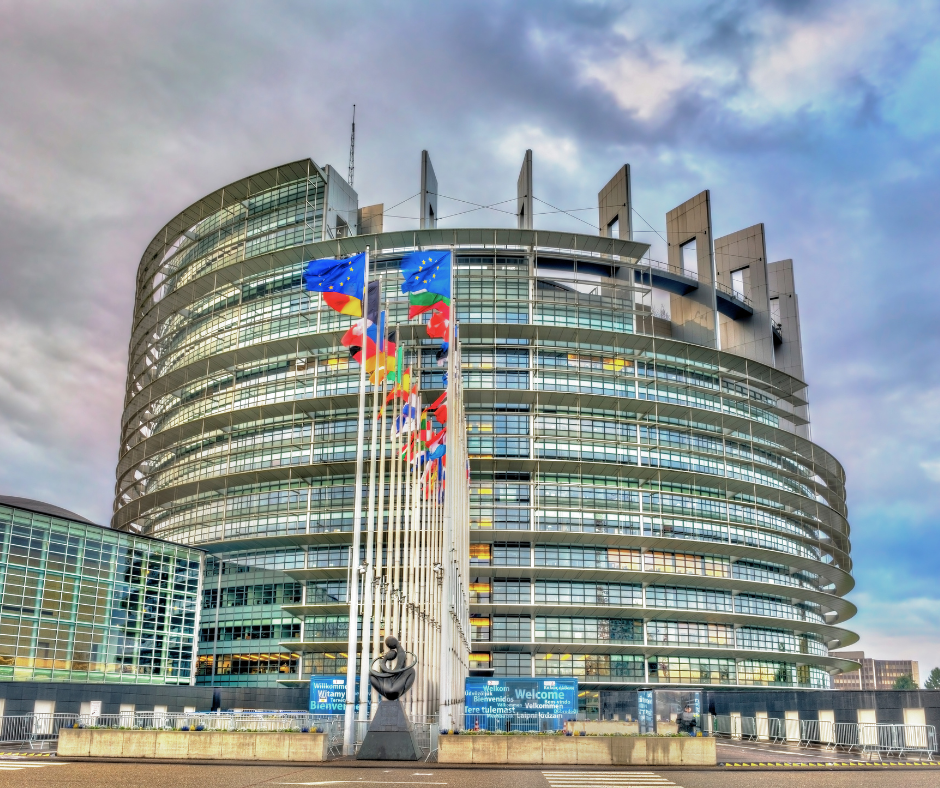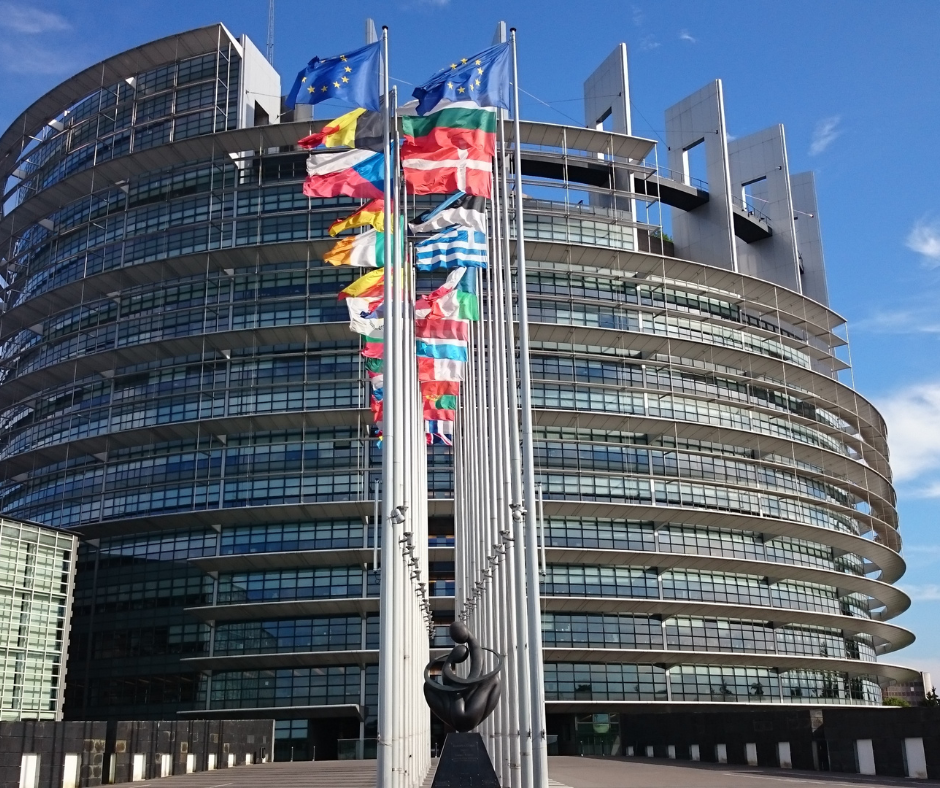Our Government affairs manager, Zoltan Kesz, recently interviewed an MEP candidate from the Christian Democratic Union of Germany to understand their perspective on the future of Europe, the strategies they recommend to address present challenges, and their opinions on crucial policy issues.
What are the biggest challenges the EU is currently facing?
“The biggest challenges include the following:
(1) Reach consensus on an EU reform to establish it as a strong European world power vis-á-vis other global powers with a real defence and security union (see (2) below) and as an even stronger competitive and innovative market economy driven by a genuine EU interest rather than national interests
(2) Substantially strengthen the European defence, security and military capacity to protect all EU citizens
(3) High number of refugees arriving in the EU
(4) Threat posed to democracy by extremist parties and movements in the EU (5) Cyber-attacks
(6) Shortage of qualified workforce
(7) Demographical development in the EU
(8) Climate change
(9) Bureaucracy
(10) Fake news
(11) Inequality of people within the EU but also globally
(12) Reduced international cooperation in combination with increased nationalism.”
What is your vision of Europe in the coming decade?
“a. The EU is established as a strong European World Power respected by other global powers as primary representative for Europe
The EU is established as a strong European World Power representing with one voice its Member States vis-à-vis Russia, China, USA, Turkey and other world powers. To this end, it is important to establish a real European defence and security union. It further requires that EU decisions on the common foreign and security policy are taken by the qualified majority – instead of unanimously, the military capabilities of EU member states are substantially strengthened, and the EU has a commissioner of defence.
The EU establishes its own digital infrastructure and ensures EU’s access to a secure, affordable and sustainable supply of critical raw materials, chips and batteries with reduced dependence on third countries (i.e. non-Eu countries).
To be respected by other global powers, the EU is a strong, competitive economic market with attractive conditions for the industry, businesses, start-ups, science and investors and with a climate of innovation, modernisation and digitalisation, based on the concept of a social market economy, and substantially reduced bureaucracy.
The EU is the role model word wide in effectively reaching the climate protection objectives, based on technological innovation and the concept of social market economy.
The EU protects its borders effectively with a strong mandate of the EU authority Frontex and contributions of all 27 Member States, and defines and effectively enforces joint migration policy respecting human rights and based on its own interests and needs.
b. Substantially strengthened democratic elements in the EU
Hand in hand with establishing the EU as a European world power (see a. above), the ‘internal democratisation’ of the EU is substantially strengthened. This includes, in particular, a stronger role of the European Parliament in the appointment of the commission, including its president, a more legislative co-decision power, and a fully-fledged right of legal initiative. In addition, the number of commission members is reduced (e.g. 15 commissioners). They should no longer be proposed by the national governments but nominated by the Commission President-designate and then approved by both the Council and the Parliament.
To foster EU politics in a genuine EU interest, the election system for the European Parliament is complemented with elements of transnational party lists. In the European Parliament elections in ten years, the election campaign of candidates for the European Parliament is (partly) led as a cross-border EU-wide campaign involving all EU citizens rather than focusing only on the member state to which the candidate belongs. To this end, the modern use of digitalisation and modern translation tools provided by the EU to all candidates should be part of the EU support for such an EU-wide election campaign.
These three points as part of an EU reform in the next EU convent will support that EU decisions are taken mid-term in a true EU spirit, see point c. below.
c. EU policy in harmonised/ integrated areas is driven by genuine EU interest rather than national interests
EU decisions in areas which are harmonised/ integrated are taken in the spirit of a genuine EU interest rather than being a compromise of national interests.
EU citizens live towards a “European way of life“. Central values include human dignity, peace and freedom, democracy, human rights, equality, the rule of law, and social and ecological responsibility.
There are EU universities in areas ‘harmonised’ by the EU, such as ECB Banking Supervision, ECB monetary policy, the resolution of credit institutions, competition law, and anti-money laundering and the countering the financing of terrorism. The education system continues to remain the competence of the Member States.
70 % of the EU citizens speak at least 2 EU languages fluently, and 50%, ideally 3 EU languages. This is the objective for all EU citizens regardless of their level of education and whether they live in big cities or at the countryside.
d. Clearer allocation of tasks between the EU and national level for the sake of clarity
The areas of competence of the EU versus the member states are more clearly defined for the sake of transparency for EU citizens and decision-makers with a view to ensuring a joint understanding and trust of all EU citizens as well as the EU member states.
It is important that the EU respects national particularities, traditions and characteristics of Member States, such as religious holidays and regional products. To this end, the European Committee of the Regions should be strengthened in the next EU reform.
In addition, the principle of subsidiarity needs to be observed, i.e. there needs to be a clear benefit and added-value for the EU citizens if the EU rather than the member states takes action, for instance by reason of the scale and effects of the proposed action.“
How do you see the role of AI in the near future? What do you think of regulating it?
“AI offers great opportunities such as increased efficiency, consistency in results, and replacing manual work of workforces, in particular in times of a shortage of qualified workforce at all levels. What is important is to make sure that human beings, i.e. people, take the crucial decisions and closely monitor the development and the use of AI.
I support a limited regulation of AI if concrete risks (e.g. human rights violations) are identified. Otherwise, the development and use of AI should be left to its users to allow for innovation and competition without overburdening bureaucracy. Please see also my reply in 6.“
How does Europe benefit from free trade agreements?
“In 2023, the EU-27 exported goods worth around 2,55 trillion euros. Free trade agreements reduce and eliminate tariffs and help address behind-the-border barriers that would otherwise impede the flow of goods and services. It encourages foreign investment, promotes regional economic and integration, and build shared approaches between the FTA partners. Generally speaking, I believe that FTAs support the economy and wealth of the countries involved and benefit consumers.
In addition, FTAs can also be a tool to encourage ongoing domestic reform, trade liberalisation, and climate protection and to foster human rights in the countries concluding the FTA.“
Many politicians talk about energy diversification. What is the ideal solution, in your opinion?
“In my view, the objective of the energy policy should be to (i) ensure reliable and affordable energy for people and the industry, (ii) support the EU as a strong economic market with attractive conditions for the industry, start-ups and other investors, and (iii) reach climate neutrality within the EU by 2050.
As far as possible, renewable energy should be increased and should play an important role. However, given that solar and wind energy – which constitutes approx. 75 per cent of the renewable energy in Germany – depend on nature and non-controllable factors, there needs to be sufficient other types for energy supply in phases with low sun and wind (energy mix).
Firstly, to allow for such a broad energy mix, given that there is currently no solution, I think it is crucial to allow for use and research in relation to all available technologies, including Photovoltaics, wind power, geothermal energy, hydropower, liquid and solid biomass as well as nuclear power and innovative nuclear technologies such as nuclear fusion. In particular, I think the prohibition of the combustion engine (Verbrennermotor) at the EU level should be reconsidered and withdrawn, in particular to allow for the use of e-fuels, given the successful pilot studies in this regard.
Secondly, within the next 2-3 years, it is important for the EU to establish a fully-fledged energy union within the EU. This requires close cooperation between member states to expand the cross-border infrastructure and the pipeline network for the transportation of energy, e.g. hydrogen, and establish more energy partnerships with reliable partners. In addition, in certain areas, it is useful to have the possibility to use more than just one form of energy to be able to adjust to market developments, for instance, in households with photovoltaic and heat pumps or in hybrid cars, depending on whether this is reasonable in terms of costs and subject to future technological developments.“
Which one do you prefer and why? Innovation vs regulation?
“I prefer a combination of both regulation and innovation, depending on the area in question.
Regulation may be useful if (i) concrete risks or issues are identified, or (ii) in the EU context, if there is a need to establish a basic joint understanding of the EU member states to ensure trust, avoid misunderstandings and support a level playing field.
Generally speaking, the state is not the better business manager. I rather trust in the expertise of the industry and the private sector. Hence, unless there is a good reason justifying an area to be regulated, I believe that high-level principles in regulation, if needed at all, are sufficient to leave more room for innovation and creativity by the industry, science and start-ups, which I think produces better results. In addition, unnecessary bureaucracy needs to be avoided. “
What are your constituents concerned about regarding the European Union?
“Key concerns include the following:
• The EU goes too far into national remit without sufficiently taking into account national particularities and historical developments.
• Decision-taking in the EU is slow and not always efficient.
• Lack of proportionality and too much bureaucracy in EU regulation.
• Lack of compliance with and enforcement of the rule of law in some member states. • The wealth per household in some EU countries substantially contributing to the EU budget seems to be lower than in some other EU countries which substantially benefit from the EU budget and EU programmes. Some people perceive this situation as unfair.
• Not all member states respect the stability and growth pact without the Commission taking sufficient steps to ensure this.”
Do you think it is wise to accept more countries into the Union?
“I think it is wise as a political and strategic objective for the Balkan countries to join the EU, given its geographical location. Nevertheless, in my view, before countries can accede to the EU, the following two basic conditions need to be fulfilled:
a. The country fully meets the criteria to accede to the EU.
b. The EU needs to be reformed prior to the accession of new member states to the EU. Otherwise, with the current institutional setup, if more countries join, today’s complex decision-making becomes even more complicated, with a risk of a reduced capability for the EU to act.
Both criteria also apply to Western Balkan countries, Ukraine, and Moldova.“

